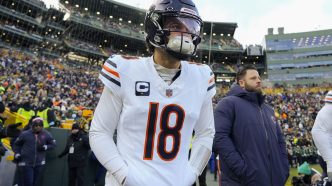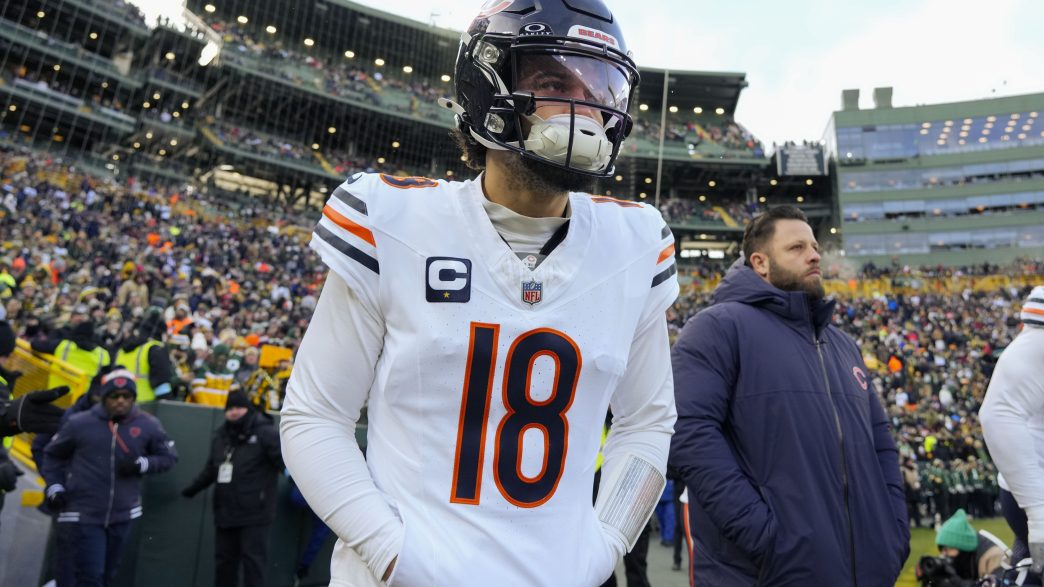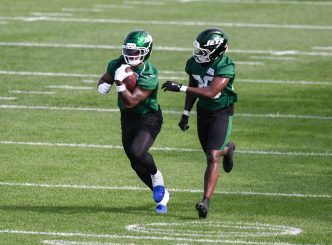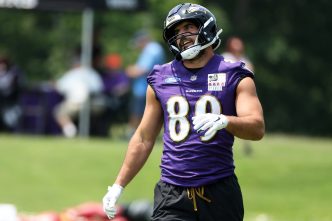Caleb Williams, the highly touted quarterback prospect, found himself grappling with the thought of being selected by the Chicago Bears in the upcoming NFL draft. According to insights from a new book, Williams and his family even explored unconventional methods to sidestep the draft altogether. They consulted with lawyers to navigate the league’s collective bargaining agreement and considered the possibility of signing with the United Football League, seeking a way to carve out a more favorable future for Caleb.
The concern was palpable, particularly from his father, Carl Williams, who conveyed his disdain for the idea of Caleb ending up in Chicago. “Chicago is the place quarterbacks go to die,” he remarked, reflecting a deep-seated worry about the franchise’s historical struggles at the quarterback position. Since the 1980s, the Bears have had a difficulty finding a star under center, a trend that continued with recent selections like Mitchell Trubisky and Justin Fields failing to meet expectations. The uncertainty surrounding the team’s direction, particularly under then-head coach Matt Eberflus, added to Carl’s concern that his son may not receive the necessary support to thrive.
The book chronicles not only Williams’ apprehensions but also the lengths to which his family was willing to go to ensure he could choose the best path for his career. Carl reached out to former players, including Archie Manning, who famously helped guide his son Eli Manning to a more favorable situation in New York by leveraging a similar negotiation tactic in 2004. Carl was determined to find ways to avoid being locked into a rookie wage scale that could confine Caleb to a team for up to eight years, potentially costing him hundreds of millions in future earnings.
As Caleb prepared for the draft, he experienced a whirlwind of emotions stemming from a mixed final season at USC. At the NFL Combine, he forged a connection with Vikings head coach Kevin O’Connell, sparking dreams of playing for Minnesota. “I need to go to the Vikings,” he told his father. While both knew a trade to a divisional rival was improbable, they sought options.
Bears GM Ryan Poles, however, made it clear: “We’re drafting you no matter what.” Faced with that ultimatum, the idea emerged that Caleb could publicly criticize the Bears, akin to the maneuvering seen in the past when legends like John Elway sought to escape unfavorable situations. Yet, Caleb felt apprehensive about making such drastic moves, worried it could exacerbate his predicament. Ultimately, after a visit to the Bears’ facility, he expressed newfound resolve. “I can do it for this team,” he said, embracing the challenge.
With the draft behind him, Williams’ rookie season in Chicago unfolded amidst turmoil, including the firing of both Eberflus and Waldron as the team endured a 10-game losing streak. Despite the chaos, Caleb managed to put together a solid campaign, completing 62.5% of his passes, tossing 20 touchdowns against six interceptions, while contending with a league-high 68 sacks. This early struggle only heightened his resolve to succeed.
As the Bears moved forward, they brought in respected offensive coordinator Ben Johnson from the Detroit Lions. In an April press conference, Caleb expressed enthusiasm about the fresh start. “Being able to be in this position, being able to have first year the way I did, ups and downs, and then to be able to come in here, be as confident as I was last year or possibly even more and to be able to get here with the group that we have, I really can’t wait to get to work with these guys,” he said, embodying the determination expected of a player stepping into a pivotal role.
Johnson echoed that sentiment, believing he could help unlock Williams’ potential as he emphasized the collaborative relationship they would build. “I see a chance for greatness here for him,” Johnson said, underscoring Williams’ pride in being a Chicago Bear and reiterating that they were both eager to work together as the franchise sought to turn the page on its history. As Williams gears up for the next chapter in his career, there’s a sense that he might just have what it takes to not only thrive but redefine what it means to play quarterback for the Bears.








